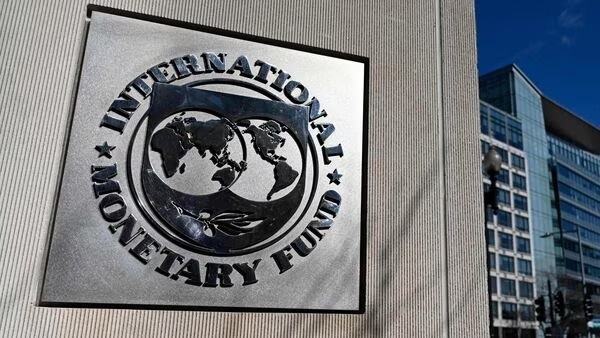China’s economy is set to grow 5% this year, after a “strong” first quarter, the International Monetary Fund said on Wednesday, upgrading its earlier forecast of 4.6% expansion though it expects slower growth in the years ahead.
The global lender’s new projections come as Beijing steps up efforts to shore up an uneven recovery in the world’s second-biggest economy, which has stumbled in the face of a protracted property crisis and its ripple effects across investors, consumers and businesses.
The IMF said it had revised up both its 2024 and 2025 GDP targets by 0.4 percentage points but warned that growth in China would slow to 3.3% by 2029 due to an ageing population and slower expansion in productivity.
It now expects China’s economy to grow 5% in 2024 and to slow to 4.5% in 2025.
“The upgrade that we have for this year mainly reflects the fact that first quarter GDP growth came in stronger than expected, and there were some additional policy measures that were recently announced,” IMF’s First Deputy Managing Director Gita Gopinath said in Beijing.
Gopinath was speaking at a press conference to mark the conclusion of the fund’s annual review of China’s economic policies.
The IMF’s upgrade for 2024 is in line with Beijing’s growth target of “around” 5%, which the economy appears to be on track to reach after it blew past expectations to post growth of 5.3% in the first quarter. But deflationary pressures continue to loom large and a protracted property crisis remains a major drag on growth.
A Reuters poll that was completed before the first quarter GDP data had forecast China’s 2024 growth at 4.6%, but many economists have upgraded their projections since the release of the stronger numbers.
In a note to clients on Monday, BNP Paribas said it expected China to hit its 5% growth target, while Goldman Sachs last month raised its forecast for 2024 to 5% from 4.8% in November. Citi also raised its own forecast to 5% from 4.6% in March. All of them cited the strong first quarter data.
PROPERTY RISKS
China’s stuttering post-COVID recovery has dragged on stock markets and the Chinese yuan, with several rounds of policy support measures yet to translate into robust demand.
The property sector crisis remains the biggest stumbling block to a full-blown economic revival, analysts say, and the IMF issued a warning about the risks ahead.
“Risks to the outlook are tilted to the downside, including from a greater or longer-than-expected property sector readjustment and increasing fragmentation pressures,” Gopinath said.
“The ongoing housing correction, which is necessary for steering the sector to a more sustainable path must continue,” she added. “We see scope for a more comprehensive policy package to address the property sector issues.”
China this month unveiled ‘historic’ steps to stabilise the property market, but analysts say the measures fall short of what is required for a sustainable recovery.
Gopinath said central government resources should be deployed to help those who have purchased pre-sold unfinished homes, since this would “pave the way for the exit of insolvent developers from the property market, allowing for greater price flexibility and helping restore equilibrium.”
The IMF expects core inflation in China to increase to average around 1% this year, she added.
A string of recent economic indicators for April including factory output, trade and consumer prices suggest the $18.6 trillion economy has successfully navigated some near-term downside risks, but China observers say the jury is still out on whether the bounce is sustainable.
Retail sales in April, for instance, grew at their slowest pace since December 2022, when Beijing’s strict zero-COVID curbs were in place, while new home prices fell at their fastest rate in nine years.
Gopinath said that the IMF had “found trade offs between supporting domestic demand, mitigating inflation risks and managing unfavourable debt dynamics” and welcomed the monetary policy steps China’s central bank has taken so far this year.
(Reuters)




















